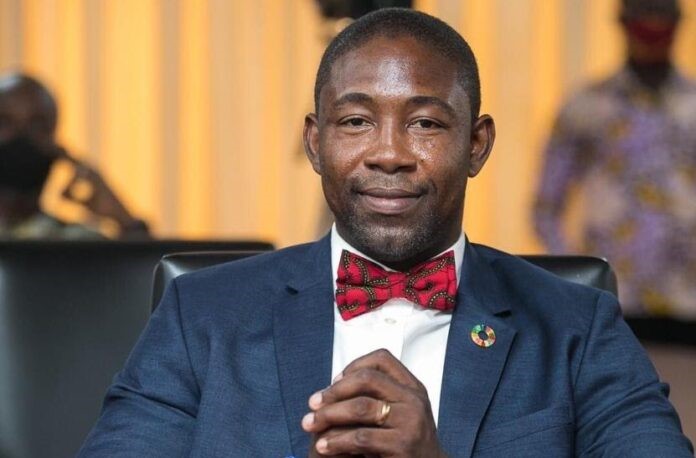- But players push for a reduction
- Expert says cost too high
- Virologist worry about quality of test
The three major stakeholders in the aviation sector – Ghana Airport Company Limited (GACL), Ghana Civil Aviation Authority (GCAA), and Port Health Unit of the Ghana Health Service – will be receiving portions of the recently introduced US$150 COVID-19 test per passenger upon arrival at Kotoka International Airport (KIA).
Even as aviation industry experts and other players such as airlines worry about the exorbitant price passengers will pay for the Rapid Diagnostic Test (RDT) and would rather see a reduction, Deputy Health Minister Dr. Bernard Okoe Boye, in justifying the cost, added that an arrangement is being made to give to these stakeholders to cater for their investments and help to manage operations of the state-of-the-art laboratory in the airport to attend all arriving passengers.
Speaking at the Information Ministry’s regular COVID-19 press briefing, Dr. Okoe-Boye said: “We looked at what is being charged across the globe before arriving at a decision”.
In Zimbabwe, he explained, passengers pay about US$210 – whiles in China they pay about US$150 and even have to wait for about six hours before they get results. In neighbouring Togo and Benin passengers pay about €210 each; while in Nigeria, after paying US$130 for a test, passengers must go to a hotel and wait for results – and that could be one or two nights. “If you are paying US$100 a night, it means you are spending close to US$300 to ensure you are safe or free of the virus,” he said.
While passengers and airlines assumed this amount would be factored into ticketing for simplicity, the B&FT has gathered that passengers will have to pay for the test separately from their ticket charges as it cannot be factored due to an international agreement with the International Air Transport Association (IATA), which calls for some stringent transparency and accounting procedures.
“As a government, we are interested in you coming but we don’t want you to come in with the virus; and by the way, nothing is more expensive than getting the virus because it can lead to critical illness – and lead to death as well. It is important to note that the cost will be borne by the passenger, not the state or the taxpayer,” Dr. Okoe Boye said.
Worry about the quality of test
Despite the test’s high cost, a virologist at the Noguchi Memorial Institute for Medical Research, Dr. Kofi Bonney, noted that the quality of the antigen RDT is not the gold standard to mitigate the importation of COVID-19 cases, as research has shown that it is not fool-proof.
He described as unscientific the decision of the government to conduct an antigen RDT after passengers present a negative Polymerase Chain Reaction (PCR) test conducted in the last 72 hours. “Scientifically, I would say the Polymerase Chain Reaction (PCR) test within 72 hours is enough. I don’t know why we have to do an antigen test, which is less sensitive, upon arrival.
“If you look at the tests that have been done over the years, we have a varying sensitivity percentage between 30 to around 80 percent; if you are looking at these figures, it means for about half of the people who take the antigen test the result may not be correct; in other words, you cannot tell if the person is positive or not.
“Apart from this, we have something we call a false positive result that comes with these antigen tests or RTD tests. Because we have other coronavirus apart from COVID-19, these antigens will pick up the antigens that have been put on that plate and it will come as if it is COVID-19 – but it is not, it is other human coronavirus; so we call them false positives. When you are dealing with these antigen tests, these are some of the disadvantages you come up with,” he said.
Also, he noted that an antigen RDT test costs between US$10-20 with US$80- 100 for a PCR test. The Egyptian Aviation Ministry also noted that it conducts a US$30 PCR analysis for all passengers upon their arrival. These data confirm the worries of airlines and other industry experts who note that Ghana’s cost is too high and should not be more than US$100, even when one considers the quality of installation at the airport.
A set-up of 70 sample collection booths has been built at the upper-level of the arrival hall alongside a state-of-the-art laboratory in the airport to attend to all the arriving passengers. The test results will be electronically transferred to port health stations in the main arrival hall to determine who is fit to enter and who needs some medical attention. The government says all the measures which have been put in place are to ensure a good balance between cost and mitigation of COVID-19 risk.










